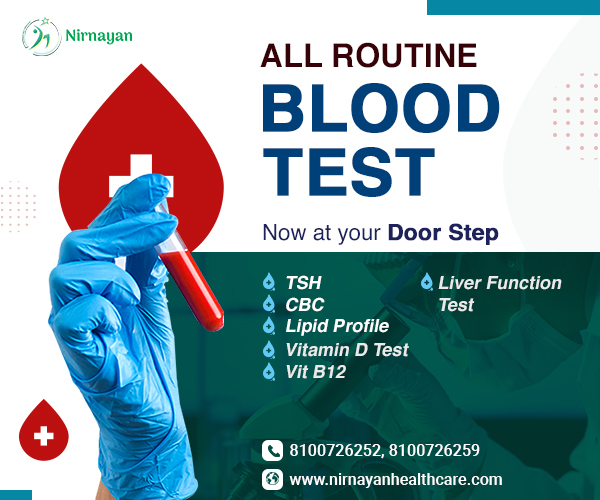This is very common if anyone is suffering from cancer. Life after cancer treatment is a concerning factor. You need to follow up on every step of what you are taking to live. For people with sarcoma, treatment may destroy or remove the cancer. Still, in this treatment procedure, you must go through a tough medical regimen like chemotherapy, surgery, medication and many more, which are not easy. You may have finished the treatment procedure and recovered from cancer successfully, but there is somehow a fear of cancer coming back.
Life after bone tissue and soft tissue malignancies means returning to your normal flow of life with some new choices and good lifestyle habits, along with thorough care.
Life after the treatment:
People who are already affected by sarcoma (it may be bone tissue or soft tissue cancer), after treatment, have to go through several emotional challenges along with health complications.
You may feel stressed, anxious, or lose your patience sometimes – it needs strong mental health support from family, friends, and also from your healthcare providers for sarcoma survivors
Once your treatment is completed, you need regular follow-ups along with doctors’ appointments, recommendations, suggestions, blood tests, and screenings – you have to become accustomed to all these, which are necessary for checking the presence of any cancerous cells in the bone tissues or soft tissues.
In this phase, you should maintain a healthy body weight, have a balanced diet (as recommended by your doctor), rest, exercise, and get good sleep to replenish your body energy – this needs to be followed as a daily routine for a sarcoma survivor.
Ask your doctor for a guideline and follow this. After treatment, there could be some emotional changes that arise with disorders, stress, anxiety, or depression – it’s normal in post-cancer treatment, but proper emotional support, activities, and sharing your thoughts help you to regain your normal life.
Regular follow-up care:
For maintaining or tracking your health status, doctors recommend that you do blood tests, imaging tests, CT scans, USG, and MRI for thorough checking of the bone tissue and soft tissue malignancies.
Regular medications, along with doctors’ consultations after your cancer treatment, are highly suggestive. If there are any health issues, consult with your medical professionals and get medications as suggested.
What to do if it returns:
Do you know soft tissue malignancies may come back after they’re cured? Yes, it may relapse within the first 5 years of its treatment. If it happens, treatment will be decided based on which body part the cancer affects and what the stages are. After confirming its stages, chemotherapy, radiotherapy, or surgery need to be done, as discussed with your medical professionals.
At this time, emotional and mental support is highly required for the patients. Mental strength is required most at this time for fighting back and keeping yourself mentally strong. If this deadly disease turns to an advanced stage, treatments may be focused on the symptoms, and urgent medical guidance can be delivered by the respective doctors.
Nutritional tips after soft tissue sarcoma treatment:
Diet, an essential part of your healthy living, especially for cancer survivors. Cancer and its treatments can weaken your body, but proper nutrition plays a crucial role in recovery. Eating a balanced diet helps restore strength, rebuild tissues, and boost overall well-being.
Here are some possible tips for your healthy diet:
Green vegetables & fruits: Experts recommend that cancer survivors should prefer a plant-based diet for faster healing of body tissues and muscle strength. It also helps in easy digestion and maintaining a healthy body weight.
- Eat a variety of fruits, fruit juice
- Add green leafy vegetables to your meals to enhance your body’s energy
- Consume fresh and boiled vegetables instead of fried veggies.
Vitamin C-rich foods: Focusing on a vitamin C-rich diet, which you can consume from fruits and vegetables such as broccoli or strawberries. It keeps your immune system on track after soft tissue malignancies.
Healthy protein: Make sure to include protein in every meal, whether from sources like meat, eggs, dairy, nuts, or plant-based options such as beans, legumes, and tofu.
Fibre & Whole Grains: Experts and dietitians recommend incorporating fibre and whole grains into your healthy and balanced diet, which also helps lower the risk of developing cancer. Breads, cereals, rice, and beans are high in fibre, and whole grains like wheat, oats, and barley are sources of vitamins, minerals, and fibre.
What foods should be avoided after bone tissue and soft tissue sarcoma treatment?
Several food items you need to avoid to prevent cancer attacks:
- Avoid highly processed or packaged foods
- Avoid consuming alcohol
- Avoid or control consuming added sugar, sweets, and refined grain products
- Do not eat red meat or processed meat
- Try to avoid spicy, fried foods.
Daily routine for a sarcoma survivor:
Exercise plays a crucial part after the treatment – begin with low-impact exercises like walking, gentle stretching, or swimming. As your body regains strength, incorporate more challenging activities like strength training and cardio. Muscle loss is common after extended treatments, so focus on rebuilding strength through light resistance training.
Physical activity also has profound benefits for mental health. Exercise releases endorphins, the body’s natural mood boosters, helping reduce feelings of anxiety and depression that may accompany recovery.
Sarcoma and mental health support:
Recovery is not just about physical health – it’s also about mental strength, too. Your mindset will shape your recovery journey, influencing both your emotional and physical healing. So, mental health support is highly needed for the survivors
Treatment may have left you feeling powerless at times, but focusing on the aspects of your life that you can control. It includes your diet, exercise, and emotional health; these will help you feel empowered and motivated.
When you have survived stress, anxiety, and depression must tend to your mental health with various physical and mental factors. Surround yourself with positive influences. Listen to uplifting podcasts, read inspiring books, and engage with people who bring out the best in you.
Whether through therapy, support groups, or loved ones, talking about your journey and feelings can help manage emotional challenges.
Conclusion:
Treatment is a journey where you need to stay strong both physically and mentally. At Nirnayan Pathology Lab, we understand what patients may feel or face challenges in treating cancer. From detection to treatment, all in your treatment, Nirnayan is always with you. We are not only your trusted pathology lab, but also aim to enhance your health desires with accurate and patient-centric care. So stay strong, do regular health checkups and have a healthy life with a healthy diet and practices. It makes you stronger and healthier after surviving Sarcoma.




